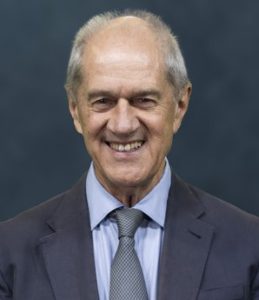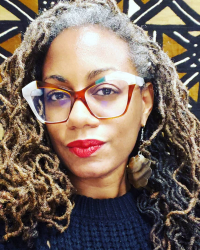From Apartheid to Racial Justice: Perspectives from South Africa
When: Wednesday, March 10, 2021 at 8:00 – 9:00 AM Pacific Time (US and Canada)
Where: Zoom webinar – register in advance here
Event Description
From 1948 until the early ‘90s, South Africa was institutionally segregated under the Apartheid system. When Nelson Mandela was elected President of South Africa in 1994, his government worked to end this segregated system by dismantling apartheid policies and legislation and facilitating racial reconciliation – a goal that seemed impossible to many at the time. How was this system dismantled and what was the reconciliation process? What is the current climate of race relations in South Africa? And how does all of this relate to the movement for racial justice here in the U.S.?
Join the Global Business Center for a conversation with Roelf Meyer, known for his role in negotiating the end of the Apartheid system in South Africa. The talk will be moderated by Dr. La TaSha Levy, a Black Studies scholar in the Department of American Ethnic Studies, who will guide the discussion, helping us make connections between Roelf Meyer’s experience in South Africa and the work toward racial justice in the United States.
About Our Speakers
As Chief Negotiator for the National Party Government, Roelf Meyer was intimately involved in the settlement of the South African conflict. Together with his counterpart Cyril Ramaphosa, Chief Negotiator for the African National Congress (ANC), Roelf negotiated the end of apartheid and helped pave the way to the first democratic elections in South Africa in 1994. After the elections, Meyer continued in his post of Minister of Constitutional Affairs in the Cabinet of President Nelson Mandela.
Roelf practiced as a lawyer in Pretoria and Johannesburg before entering politics as Member of Parliament in 1979. He resigned from active politics after 21 years at the end of January 2000. During this period he served as Deputy Minister of Law and Order, Deputy Minister of Constitutional Development, Cabinet Minister of Defence, and Cabinet Minister of Constitutional Affairs. On 27 March 2009, President Kgalema Motlanthe awarded Roelf the Order of the Baobab in Silver for “his immense contribution in providing special support in the birth of the new democratic South Africa through negotiations and ensuring that South Africa has a Constitution that protects all its citizens”. Roelf was chair of the South African Defence Review Committee (2011 to 2014), and currently serves on the boards of various companies. He is an active consultant on peace processes, and has advised parties in Northern Ireland, Sri Lanka, Rwanda, Burundi, Iraq, Kosovo, the Basque Region, Guyana, Bolivia, Kenya, Madagascar, and South Sudan. Roelf held the Tip O’Neill Chair in Peace Studies at the University of Ulster, Northern Ireland from 2000-2001, and is currently an honorary professor at the Gordon Institute of Business Science at the University of Pretoria.
La TaSha Levy is a Black Studies scholar and assistant professor in the Department of American Ethnic Studies at the University of Washington. Her research and teaching interests include post-WWII Black political history, Black intellectual history, social movements, Black Women’s Studies and the social meaning of race. Her course, “Black Power on College Campuses” explores the Black Student Movement in the U.S. and in South Africa during the era of Black Power and Black Consciousness. She also offered one of the first college courses centered on the #BlackLivesMatter Movement.
About the Global Business Center
The Global Business Center is a national leader in business education that delivers transformative global experiences on campus and beyond, preparing all students to meet and influence the evolving needs of the business world. Our programming inspires students to transcend borders, work in diverse teams, lead positive change, and inform decisions through a global lens. Learn more about us here.
The University of Washington is committed to providing access and reasonable accommodation in its services, programs, and activities. Accommodation requests related to a disability should be made by March 1 to Ronda Rutherford (rondstar [at] uw.edu; 206-616-9565).



